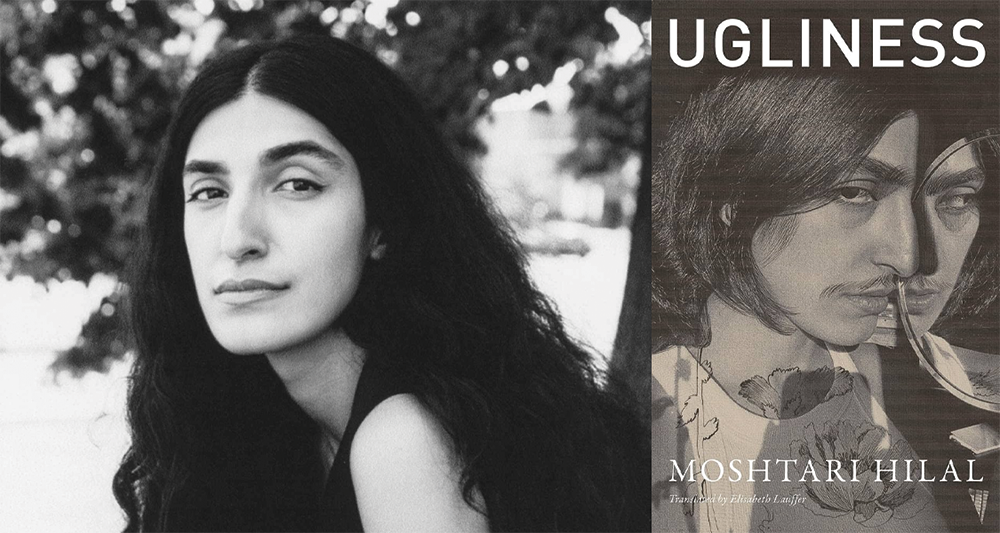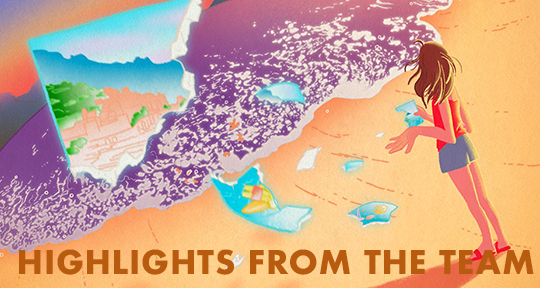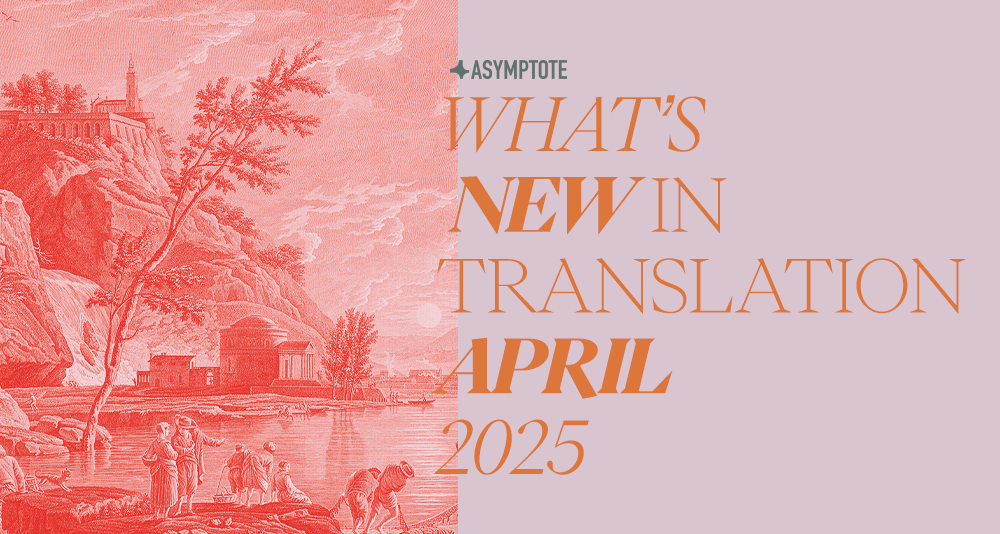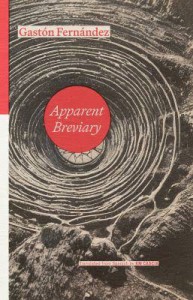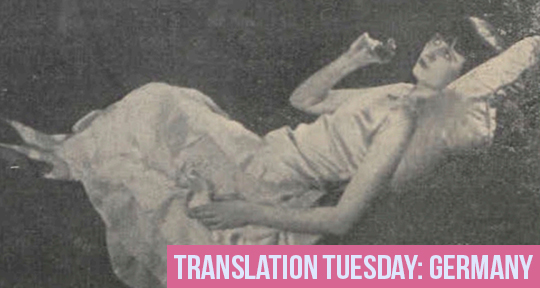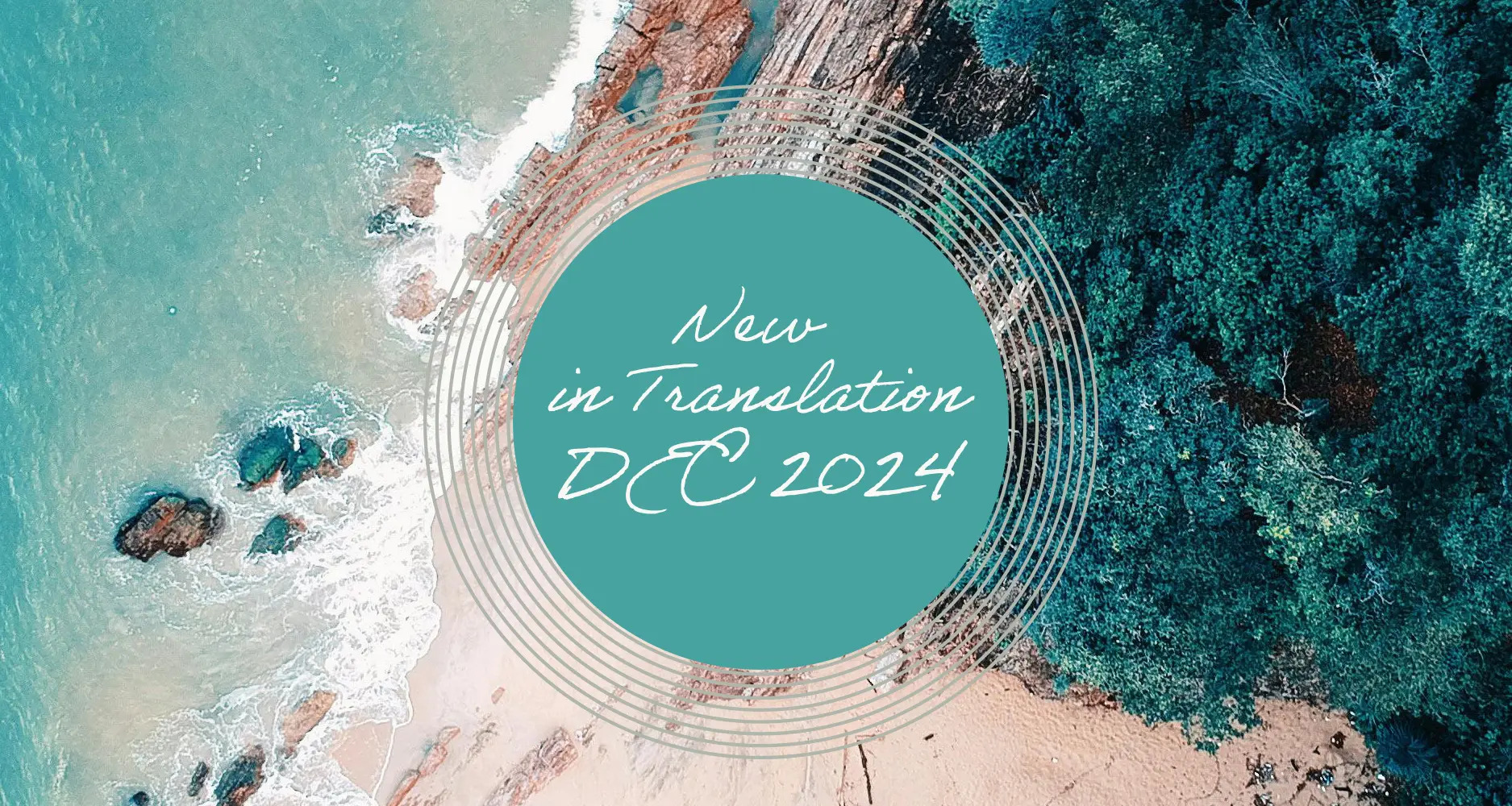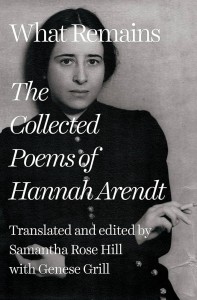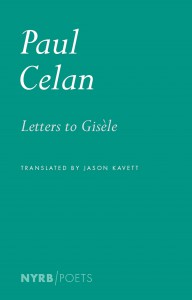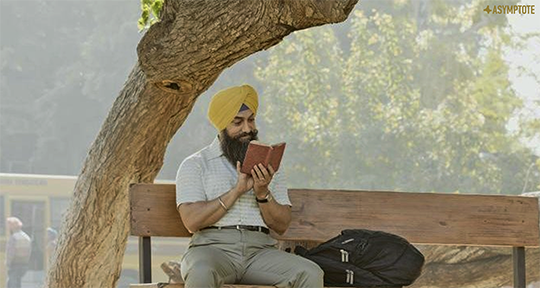The still-young genre of climate fiction—or ‘cli-fi’—dreams of inspiring change, yet critics have pointed out that its overwhelmingly dystopian narratives are more likely to trigger paralysis or apathy; if we’re doomed, what’s the point? Within this contemporary affliction of passivity, Franziska Gänsler’s Eternal Summer juxtaposes its burning world with a potent human story of choice, stasis, and compassions, cementing its varied cast in an unmistakably contemporary mode, yet with the same ethical conundrums that have confounded us since time immemorial. The sheer breadth of our current problems can wither us into an insular complacency, but Gänsler powerfully points us towards the matter of our freedom. We’re delighted to present this timely novel as our Book Club selection for the month of May—it’s a hot one.
The Asymptote Book Club aspires to bring the best in translated fiction every month to readers around the world. You can sign up to receive next month’s selection on our website for as little as USD20 per book; once you’re a member, join our Facebook group for exclusive book club discussions and receive invitations to our members-only Zoom interviews with the author or the translator of each title.
Eternal Summer by Franziska Gänsler, translated from the German by Imogen Taylor, Other Press, 2025
Once upon a time, the promise of an eternal summer may have seemed idyllic. In the popular imagination, the season has so often signified carefree vacations, sandy shores and glittering waters, balmy nights and languid mornings, the well-deserved time-out from a life of hard work or study. But it’s 2025. Summers have become increasingly hot. And long. And dry. I can vividly remember the eerie smog and the smell of smoke in the air as the 2019-20 bushfires raged across the southeast of Australia; even though I was hundreds of kilometres from any active fires, I had my first, pre-COVID experience of donning a mask for daily activities. Holidays were cancelled. New Year’s celebrations abandoned. Beach towns evacuated. This is the summer of our times—and sometimes even winter, too; just this January, southern California saw wildfires spreading into urban areas, decimating homes and taking lives and livelihoods, while less well-publicised infernos have also blazed through parts of South Korea and South Africa.
Somewhere in what seems to be Bavaria, Franziska Gänsler’s Eternal Summer is sweltering a few years from now, in a future where the climate target of a 1.5°C threshold is no longer a goal even for activists. It’s October, and an empty spa resort is being threatened by the fires raging through the nearby conifer forests for the fifth or sixth year in a row. It all seems hard to keep track for Iris, who is living out her own lonely summer days in this hotel that she inherited, sunbathing and checking the latest weather warnings—but only when the situation isn’t so dire that they’re played over roaming loudspeakers: ‘Stay home, wear face masks, keep doors and windows shut. Stay home, wear face masks, keep doors and windows shut. Stay home.’ Although she’s aware of the danger and trusts the climate science, her physical and economic precarity—hotel bookings are no longer allowed, even if anyone actually wanted to take the waters in this water-restricted spa town—are not enough for Iris to leave. She has no one and nowhere to go to. READ MORE…




